-
 Bitcoin
Bitcoin $84,887.8886
1.15% -
 Ethereum
Ethereum $1,642.5421
4.46% -
 Tether USDt
Tether USDt $0.9997
0.02% -
 XRP
XRP $2.1371
3.96% -
 BNB
BNB $596.3744
1.16% -
 Solana
Solana $129.9399
7.55% -
 USDC
USDC $0.9998
-0.02% -
 Dogecoin
Dogecoin $0.1666
3.79% -
 TRON
TRON $0.2476
2.11% -
 Cardano
Cardano $0.6527
3.49% -
 UNUS SED LEO
UNUS SED LEO $9.3206
-0.73% -
 Chainlink
Chainlink $13.0892
2.57% -
 Avalanche
Avalanche $20.3596
4.93% -
 Stellar
Stellar $0.2450
4.18% -
 Sui
Sui $2.3183
3.47% -
 Toncoin
Toncoin $3.0155
1.09% -
 Shiba Inu
Shiba Inu $0.0...01256
2.60% -
 Hedera
Hedera $0.1720
1.61% -
 Bitcoin Cash
Bitcoin Cash $350.3078
11.67% -
 MANTRA
MANTRA $6.2812
-2.17% -
 Litecoin
Litecoin $78.8248
2.32% -
 Polkadot
Polkadot $3.7123
3.59% -
 Hyperliquid
Hyperliquid $16.2646
3.18% -
 Dai
Dai $1.0002
0.02% -
 Bitget Token
Bitget Token $4.3865
1.15% -
 Pi
Pi $0.7345
20.70% -
 Ethena USDe
Ethena USDe $0.9990
0.03% -
 Monero
Monero $205.5954
0.29% -
 Uniswap
Uniswap $5.5522
4.97% -
 OKB
OKB $53.6736
0.54%
What is gas fee? Why do Ethereum transactions need to pay gas?
Gas fees on Ethereum compensate miners for processing transactions and executing smart contracts, calculated as Gas Used x Gas Price, and can vary with network congestion.
Apr 12, 2025 at 05:35 am
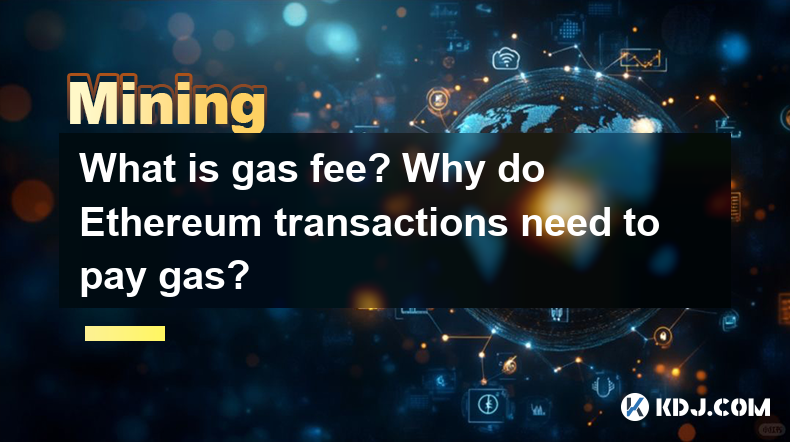
What is a Gas Fee?
Gas fees are payments made by users to compensate for the computational energy required to process and validate transactions or execute smart contracts on the Ethereum blockchain. The term "gas" refers to the unit that measures the amount of computational effort needed to perform operations. Each operation on the Ethereum network has a fixed gas cost, and the total gas used by a transaction is multiplied by the gas price, which is measured in Gwei (a smaller unit of Ether), to determine the total transaction fee.
Why Do Ethereum Transactions Need to Pay Gas?
The Ethereum network operates on a decentralized model, where miners or validators are responsible for processing transactions and adding them to the blockchain. Paying gas fees serves multiple purposes:
- Incentivizing Miners: Miners are rewarded with these fees for their computational work. The higher the gas fee, the more incentive miners have to prioritize and include the transaction in the next block.
- Preventing Network Abuse: By requiring gas fees, the network discourages spam and denial-of-service attacks, as these would become economically unfeasible.
- Resource Allocation: Gas fees help manage the network's resources efficiently by ensuring that only transactions willing to pay for the required computational effort are processed.
How Are Gas Fees Calculated?
Gas fees are calculated based on two main components:
- Gas Limit: This is the maximum amount of gas you're willing to use for your transaction. It represents the upper limit of computational effort you're willing to pay for.
- Gas Price: This is the amount of Ether you're willing to pay per unit of gas. It's usually measured in Gwei.
The total gas fee is then calculated using the formula: Total Gas Fee = Gas Used x Gas Price. For instance, if a transaction uses 20,000 gas units and the gas price is set at 20 Gwei, the total fee would be 400,000 Gwei, or 0.0004 Ether.
Factors Affecting Gas Fees
Several factors can influence the gas fees on the Ethereum network:
- Network Congestion: When the network is busy, gas prices tend to increase as users compete to have their transactions processed quickly.
- Transaction Complexity: More complex transactions or smart contracts that require more computational power will naturally require more gas.
- Market Conditions: The overall demand for Ethereum transactions and the price of Ether can impact gas fees.
How to Set Gas Fees
Setting the right gas fee is crucial for ensuring your transaction is processed in a timely manner. Here's how you can set gas fees using a typical Ethereum wallet:
- Open Your Wallet: Launch your Ethereum-compatible wallet, such as MetaMask or Trust Wallet.
- Initiate a Transaction: Select the option to send Ether or interact with a smart contract.
- Adjust Gas Settings: Look for the gas settings. You'll typically see options to set both the gas limit and the gas price.
- Set Gas Limit: Enter the gas limit based on the complexity of your transaction. For simple transfers, a standard limit of 21,000 gas is often used.
- Set Gas Price: Choose a gas price based on current network conditions. Many wallets offer a slider to set the fee to "slow," "average," or "fast."
- Review and Confirm: Double-check the total fee and confirm the transaction.
The Role of Gas in Smart Contracts
Smart contracts on Ethereum also rely on gas to execute their operations. Each function within a smart contract has an associated gas cost, and the total gas used depends on the complexity of the contract's logic. When deploying or interacting with smart contracts, users must ensure they have enough Ether to cover the gas costs, as failing to do so can result in the transaction being reverted.
Gas Fees and Ethereum's Evolution
The issue of gas fees has been a significant focus of Ethereum's ongoing development. Ethereum 2.0 and other scaling solutions aim to reduce gas fees and improve the network's efficiency. While these updates are designed to address the scalability and cost issues, understanding the current mechanics of gas fees remains essential for users.
FAQs
Q1: Can gas fees be refunded if a transaction fails?
A1: If a transaction fails due to insufficient gas, the unused gas is typically refunded to the sender's account. However, the gas that was used up to the point of failure is not refundable.
Q2: How can I estimate gas fees before sending a transaction?
A2: Many Ethereum wallets and block explorers provide tools to estimate gas fees based on current network conditions. You can use these tools to get an idea of the fees before initiating a transaction.
Q3: What happens if I set the gas limit too low?
A3: If the gas limit is set too low and the transaction runs out of gas before completion, the transaction will fail, and you will lose the gas that was used. It's important to set the gas limit appropriately to ensure your transaction can be processed successfully.
Q4: Are there any alternatives to paying high gas fees on Ethereum?
A4: Yes, some alternatives include using layer 2 scaling solutions like Optimism or Arbitrum, which can significantly reduce gas fees. Additionally, other blockchains like Binance Smart Chain offer lower transaction fees as an alternative to Ethereum.
Disclaimer:info@kdj.com
The information provided is not trading advice. kdj.com does not assume any responsibility for any investments made based on the information provided in this article. Cryptocurrencies are highly volatile and it is highly recommended that you invest with caution after thorough research!
If you believe that the content used on this website infringes your copyright, please contact us immediately (info@kdj.com) and we will delete it promptly.
- Toncoin [TON] Could Be on the Verge of a Rebound as Key Technical and On-chain Metrics Flashed Bullish Signals
- 2025-04-13 03:00:14
- BlockDAG (BDAG) Promises 3932% ROI in 2025, Outpacing Litecoin and Avalanche
- 2025-04-13 03:00:14
- 4 Best Cryptos to Buy Today: BlockDAG, BNB, XRP, and Toncoin
- 2025-04-13 02:55:13
- It’s Been an Exceptionally Volatile Week, but One Measure May Be Signaling Longer-Term Bullish Sentiment for Bitcoin
- 2025-04-13 02:55:13
- Popcat (POPCAT) Stages a Strong Comeback as Investors Buy the Dip and Exchange Reserves Drop
- 2025-04-13 02:50:13
- Bathed in the effervescent glow of the cryptocurrency market
- 2025-04-13 02:50:13
Related knowledge
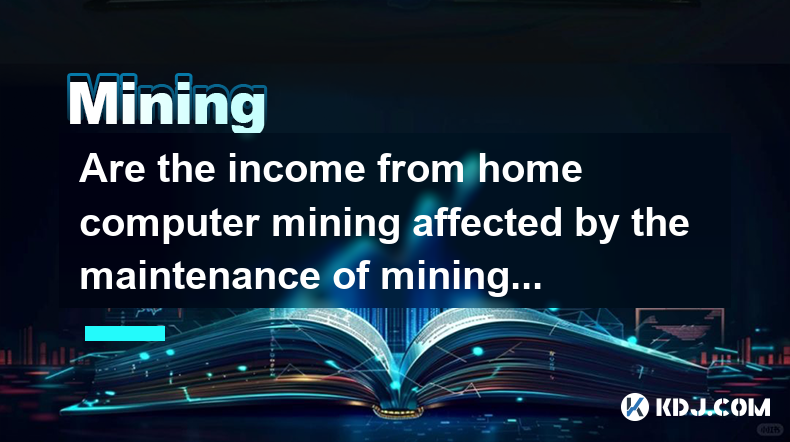
Are the income from home computer mining affected by the maintenance of mining equipment?
Apr 12,2025 at 06:56pm
Introduction to Home Computer MiningHome computer mining refers to the process of using personal computers to mine cryptocurrencies such as Bitcoin, Ethereum, and others. This method of mining has become popular among enthusiasts who want to participate in the cryptocurrency ecosystem without investing in specialized mining hardware. However, the income...

What is the cost structure of cloud computing power mining platform?
Apr 13,2025 at 02:50am
The cost structure of a cloud computing power mining platform is a critical aspect for miners to understand before they engage in cryptocurrency mining. This article delves into the various elements that contribute to the overall cost of using such platforms, providing a comprehensive overview that can help potential miners make informed decisions. Unde...
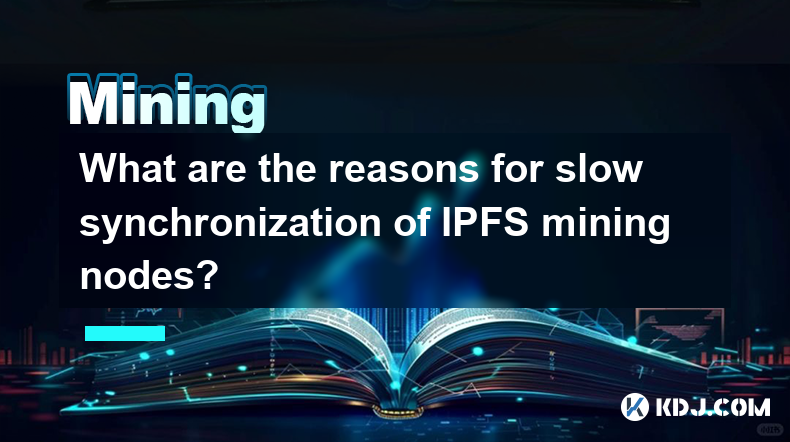
What are the reasons for slow synchronization of IPFS mining nodes?
Apr 13,2025 at 01:07am
The synchronization of InterPlanetary File System (IPFS) mining nodes is a critical process that ensures the integrity and efficiency of the decentralized network. However, users often encounter slow synchronization, which can be frustrating and impact their overall experience. Understanding the reasons behind this issue is essential for optimizing node...
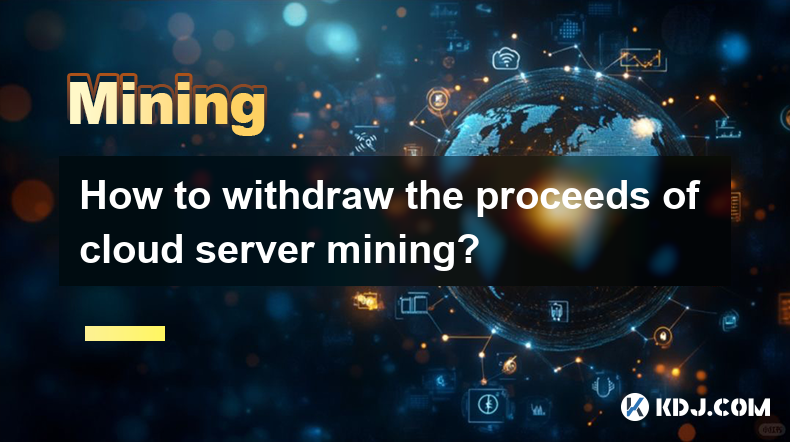
How to withdraw the proceeds of cloud server mining?
Apr 12,2025 at 06:14pm
How to Withdraw the Proceeds of Cloud Server Mining? Cloud server mining has become an increasingly popular way for individuals to participate in cryptocurrency mining without the need for expensive hardware and technical expertise. However, once you've successfully mined some cryptocurrency, the next crucial step is understanding how to withdraw your p...
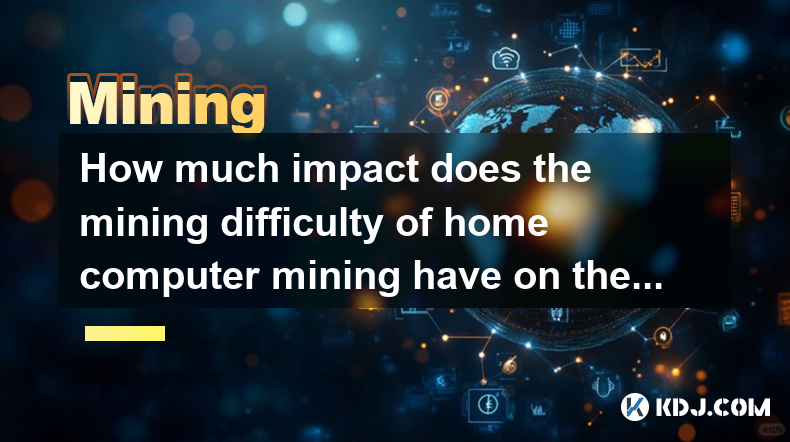
How much impact does the mining difficulty of home computer mining have on the benefits?
Apr 12,2025 at 11:01pm
The mining difficulty of cryptocurrencies significantly affects the benefits that can be derived from mining on a home computer. Mining difficulty refers to the measure of how difficult it is to find a hash below a given target, which is a critical component of the mining process for cryptocurrencies like Bitcoin. This article will explore the impact of...
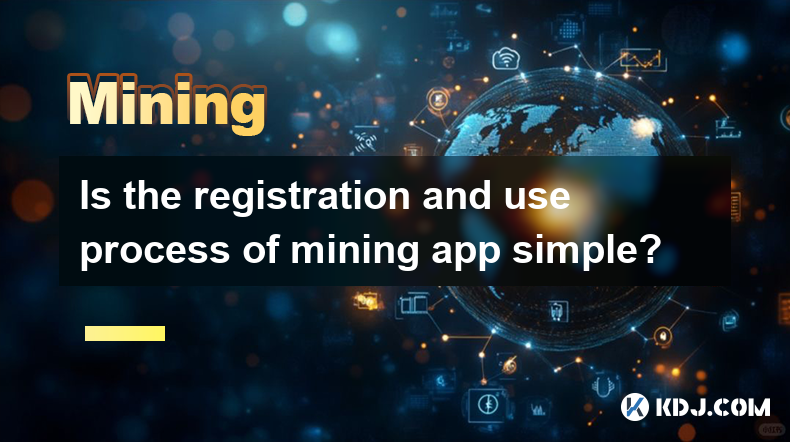
Is the registration and use process of mining app simple?
Apr 12,2025 at 02:07pm
The registration and use process of a mining app can vary in complexity depending on the specific app in question. However, many modern mining apps strive to be user-friendly, aiming to simplify the process for both novice and experienced users. In this article, we will delve into the typical steps involved in registering and using a mining app, highlig...

Are the income from home computer mining affected by the maintenance of mining equipment?
Apr 12,2025 at 06:56pm
Introduction to Home Computer MiningHome computer mining refers to the process of using personal computers to mine cryptocurrencies such as Bitcoin, Ethereum, and others. This method of mining has become popular among enthusiasts who want to participate in the cryptocurrency ecosystem without investing in specialized mining hardware. However, the income...

What is the cost structure of cloud computing power mining platform?
Apr 13,2025 at 02:50am
The cost structure of a cloud computing power mining platform is a critical aspect for miners to understand before they engage in cryptocurrency mining. This article delves into the various elements that contribute to the overall cost of using such platforms, providing a comprehensive overview that can help potential miners make informed decisions. Unde...

What are the reasons for slow synchronization of IPFS mining nodes?
Apr 13,2025 at 01:07am
The synchronization of InterPlanetary File System (IPFS) mining nodes is a critical process that ensures the integrity and efficiency of the decentralized network. However, users often encounter slow synchronization, which can be frustrating and impact their overall experience. Understanding the reasons behind this issue is essential for optimizing node...

How to withdraw the proceeds of cloud server mining?
Apr 12,2025 at 06:14pm
How to Withdraw the Proceeds of Cloud Server Mining? Cloud server mining has become an increasingly popular way for individuals to participate in cryptocurrency mining without the need for expensive hardware and technical expertise. However, once you've successfully mined some cryptocurrency, the next crucial step is understanding how to withdraw your p...

How much impact does the mining difficulty of home computer mining have on the benefits?
Apr 12,2025 at 11:01pm
The mining difficulty of cryptocurrencies significantly affects the benefits that can be derived from mining on a home computer. Mining difficulty refers to the measure of how difficult it is to find a hash below a given target, which is a critical component of the mining process for cryptocurrencies like Bitcoin. This article will explore the impact of...

Is the registration and use process of mining app simple?
Apr 12,2025 at 02:07pm
The registration and use process of a mining app can vary in complexity depending on the specific app in question. However, many modern mining apps strive to be user-friendly, aiming to simplify the process for both novice and experienced users. In this article, we will delve into the typical steps involved in registering and using a mining app, highlig...
See all articles























































































